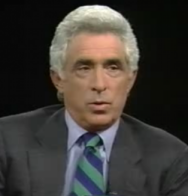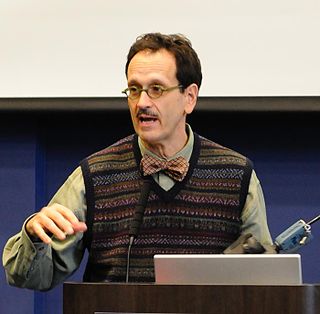A Quote by Ronald Reagan
Millions of individuals making their own decisions in the marketplace will always allocate resources better than any centralized government planning process.
Related Quotes
Our system freed the individual genius of man. Released him to fly as high & as far as his own talent & energy would take him. We allocate resources not by government. decision but by the millions of decisions customers make when they go into the market. place to buy. If something seems too high-priced we buy something else. Thus resources are steered toward those things the people want most at the price they are willing to pay. It may not be a perfect system but it's better than any other that's ever been tried.
Strategic planning is the continuous process of making present entrepreneurial (risk-taking) decisions systematically and with the greatest knowledge of their futurity; organizing systematically the efforts needed to carry out these decisions; and measuring the results of these decisions against the expectations through organized, systematic feedback.
What we call the market is really a democratic process involving millions, and in some markets billions, of people making personal decisions that express their preferences. When you hear someone say that he doesn't trust the market, and wants to replace it with government edicts, he's really calling for a switch from a democratic process to a totalitarian one.
The opportunities and threats existing in any situation always exceed the resources needed to exploit the opportunities or avoid the threats. Thus, strategy is essentially a problem of allocating resources. If strategy is to be successful, it must allocate superior resources against a decisive opportunity.
Our Founding Fathers never meant for Washington, D.C. to be the fount of all wisdom. As a matter of fact they were very much afraid if that because they'd just had this experience with this far-away government that had centralized thought process and planning and what have you, and then it was actually the reason that we fought the revolution in the 16th century was to get away from that kind of onerous crown if you will.
Hackman's paradox: Groups have natural advantages: they have more resources than individuals; greater diversity of resources; more flexibility in deploying the resources; many opportunities for collective learning; and, the potential for synergy. Yet studies show that their actual performance often is subpar relative to "nominal" groups (i.e. individuals given the same task but their results are pooled.) The two most common reasons: groups are assigned work that is better done by individuals or are structured in ways that cap their full potential.
Normally I do all my own post work. It's not that I do it better than anyone else, I just do it my way. I make decisions. People who print at labs are probably far better printers, but they won't make my decisions mid-process. I don't want to be out of the loop. I want to be a photographer and do all of it.
Politically, sometimes you get situations where rent control will go through. It is especially true in an emergency, where there is a sudden, sharp increase in demand for housing or a cut back in supply. People will simply not allow the marketplace to allocate housing resources and so you get pressures for rent control. Once you have it, it is hard to eliminate.
Collectivism takes on many guises and seldom uses its own real name. Words like 'community' and 'social' soothe us into thinking that collectivist decision-making is somehow higher and nobler than individual or 'selfish' decision-making. But the cold fact is that communities do not make decisions. Individuals who claim to speak for the community impose their decisions on us all.
The analysis in the era of Ronald Reagan and Margaret Thatcher was that government was interfering with the efficiency of the economy through protectionism, government subsidies, and government ownership. Once the government "got out of the way," private markets would allocate resources efficiently and generate robust growth. Development would simply come.

































